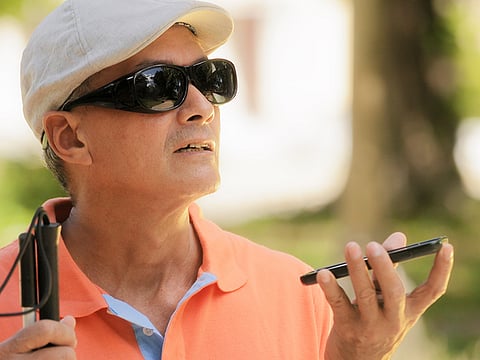Visualising tomorrow
Japanese computer scientist Cheicko Asakawa believes technological advancements will provide people with visual impairments a far richer world in the near future

When asked to describe her profession, Cheicko Asakawa says, “I work with technology to improve the quality of life for people with visual impairments.” Asakawa, who is blind herself, is a Japanese computer scientist who has been at the forefront of using her skills to enhance the lives of the blind and visually impaired.
Initially she focused on digitising Braille, creating digital editing systems, a library and network system for the media.
In the 1990s, Asakawa turned her attention to the impact the internet could have on the visually impaired. “I focused on web accessibility because I knew the web was going to offer a completely new information resource,” she says. “The information accessibility environment has improved and completely changed our lives.”
Currently, Asakawa is exploring the potential of digital navigation for the blind. She has already achieved an accuracy level of the technology in certain environments which she believes is sufficient for the technology to work. “In 10 or 20 years, the accuracy may reach 1cm but I think it is accurate enough now to start using.
“Twenty years ago was a time when the internet started to grow and there were no smartphones. At the time, mobility and navigation through technology were one of my dreams but I’m a computer scientist, not a dreamer, so I don’t just want to talk.”
Asakawa, as a blind person, has a deep insight into everyday life for people with visual impairments. She refers to scenarios where people are talking on the telephone and she feels anxious or confused about whether they’re trying to talk to her. Nevertheless, in the next 20 years, she predicts that technology will improve the lives of the visually impaired dramatically.
“In 20 years from now, I’m sure that blind people should be able to move around the world much better than now,” she says. “Cameras will become much better and I don’t know what the device people will be carrying but I am sure we will be able get much more information.
“Now we have face recognition and in 20 years, I should be able to find my friends or obtain information from people around me. I think blind people will be able to supplement their missing abilities and our vision will be increased.”
She provides an insight into the simple aspects of life that blind people miss. “We will be able to recognise a long line in front of a restaurant and know that it’s a good one.”
Sign up for the Daily Briefing
Get the latest news and updates straight to your inbox

